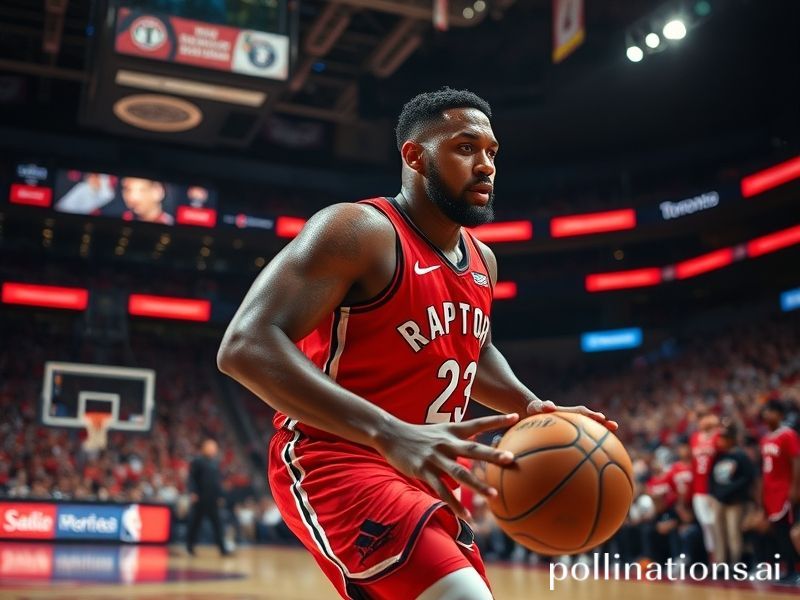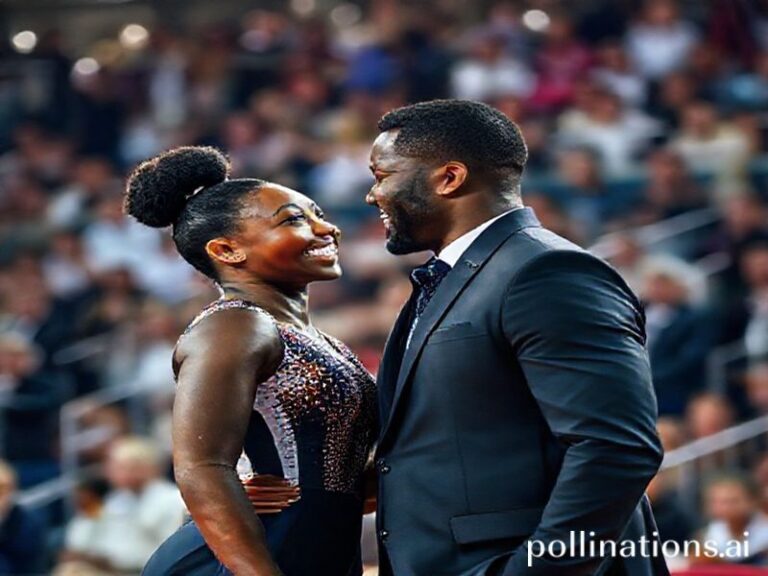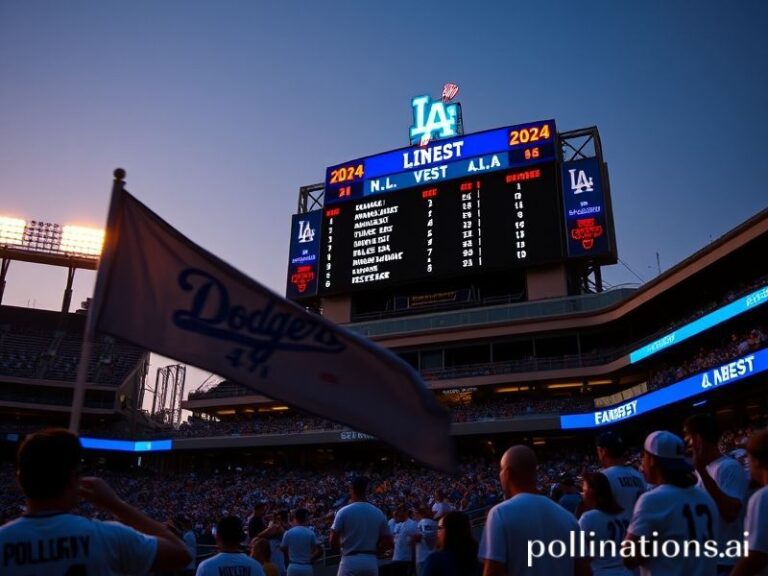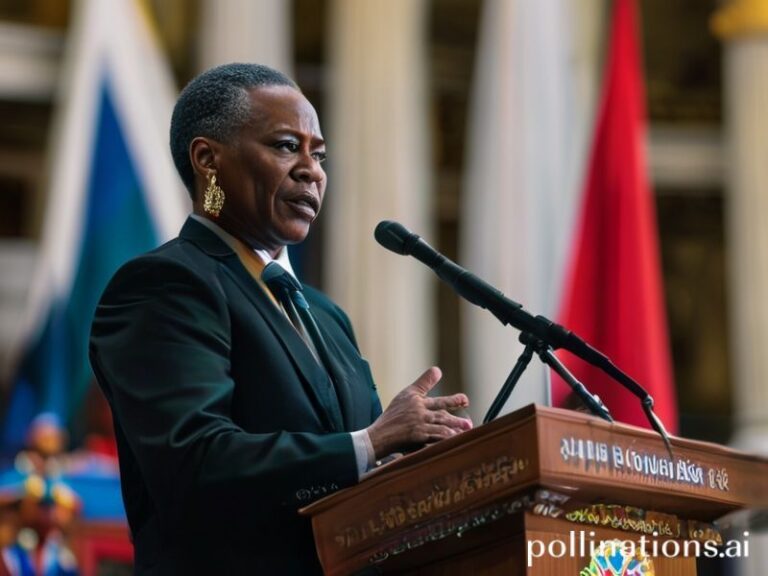Fred VanVleet’s $130M Payday: How One Undrafted Guard Became a Global Economic Parable
Fred VanVleet, the 6-foot-nothing guard who once went undrafted and is now busy annihilating NBA salary caps, has become an unlikely Rorschach test for the post-pandemic planet. While North Americans debate whether he’s worth his new three-year, $130-million Houston contract, the rest of the globe watches with a mixture of envy and anthropological curiosity: only in the United States, they mutter into their espressos, can a man who averages 19 points a night be paid more than the annual health-care budget of, say, Sierra Leone.
VanVleet’s story is usually packaged as wholesome bootstrap mythology—Rockford, Illinois, to Wichita State, to G League afterthought, to 2019 Finals hero who kissed the Larry O’Brien trophy while wearing a mouth-guard that looked suspiciously like a pacifier for grown men. But zoom out and you see a parable of turbo-capitalist arbitrage. Every extra three-pointer he buries is simultaneously a data point on a Bloomberg terminal in Singapore, a line of code in a Manila sweatshop tracking fantasy stats, and a small existential wound to the 99 percent of humans who will never be “underpaid” at $30 million a year.
Consider the geopolitical ripple. When VanVleet signed with Houston, the Rockets’ parent company—Tilman Fertitta’s Landry’s Inc.—saw its junk-rated bonds tick up a basis point or two. Chinese streaming giant Tencent, which lost billions after the NBA’s brief dalliance with Hong Kong democracy tweets, quietly resumed full Rockets broadcasts because VanVleet jerseys apparently move product in Guangzhou. Meanwhile, European central bankers, busy trying to keep the euro from collapsing under the weight of Italian debt, took one look at the contract and sighed: “Quantitative easing, but make it sneakers.”
The international scouting pipeline is now officially a pipeline of delusion. From Lagos to Ljubljana, teenagers with a decent crossover imagine themselves as the next Fred, blissfully unaware that for every VanVleet there are roughly 47,000 anonymous gym rats currently selling protein powder on Instagram. Australia’s NBL markets itself as a finishing school for American dreams, but its real export is disappointment gently gift-wrapped in Aussie slang: “Yeah, nah, mate, you’re not him.” Even Canada—where VanVleet once paid in loonies for Tim Hortons coffee—has pivoted from polite gratitude to cold economic calculus: if we can’t mine nickel anymore, we’ll just mint combo guards.
Then there’s the cultural translation problem. In South Korea, where esports stars are idolized with K-pop intensity, fans struggle to understand why a basketball player who isn’t even 6’6″ can headline prime time. In Argentina, where the peso’s value fluctuates like a flopping Euroleague guard, locals convert VanVleet’s salary into 55 billion pesos and decide the number is more useful as a Wi-Fi password. And somewhere in a refugee camp outside Aleppo, a kid who’s never seen an indoor court downloads a pixelated highlight of VanVleet’s step-back three and thinks, “This is what hope costs now.”
Of course, the cynics among us—those who’ve read too much Marx or simply checked our bank balances—note that VanVleet’s payday arrives just as the NBA’s new collective bargaining agreement tightens like a tourniquet around middle-class veterans. The league effectively told its labor force: “We’ll overpay one folk hero so we can underpay the next hundred.” It’s a trick learned from Silicon Valley, where stock-option fairy tales justify the gig economy, and from European soccer, where one Neymar transfer subsidizes an entire pyramid of unpaid youth academies. VanVleet is simply the latest golden hood ornament on a runaway supply-chain truck.
And yet, when he sinks a 30-footer over some seven-foot Estonian in February, we’ll all lean in. Not because we love the Rockets—God help anyone who chooses to love the Rockets—but because the spectacle confirms a comforting lie: that merit still elbows its way through nepotism, that the little guy can still cash in big. Global capitalism, ever the gracious host, allows us exactly one Fred VanVleet every few seasons to keep the myth on life support. The rest of us get the bill, payable in attention, data, and the quiet understanding that we are definitely not him.
So here’s to Fred: may his threes stay pure, his hamstrings intact, and his accountants creative. The planet will keep spinning—unevenly, unfairly, and with a wicked comedic spin—but at least we have one man who proved the house occasionally lets the mark win. Just don’t read the fine print on the back of the ticket. It’s written in disappearing ink, and it always, always expires at midnight.







